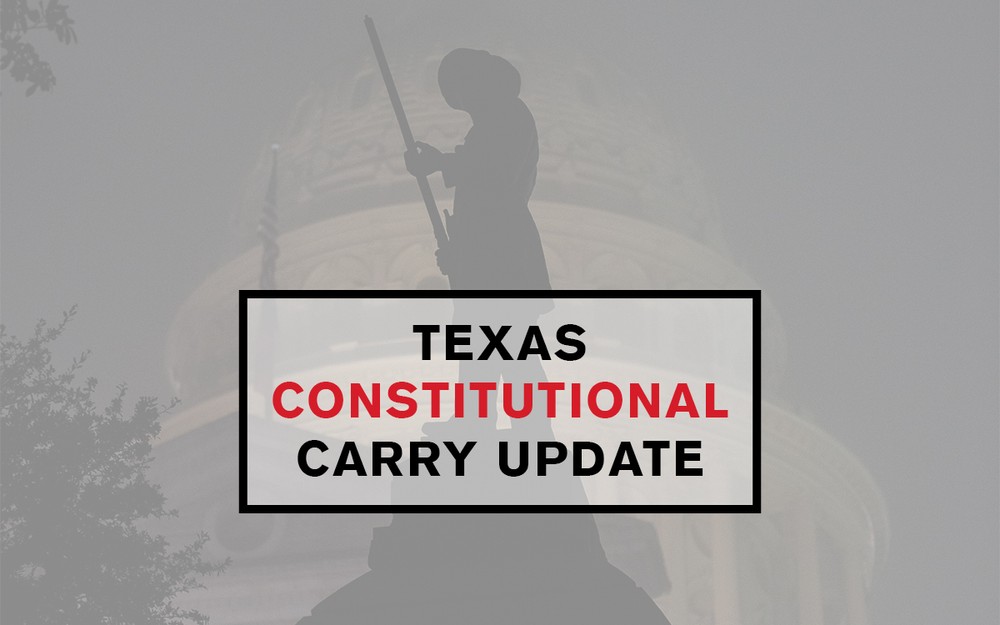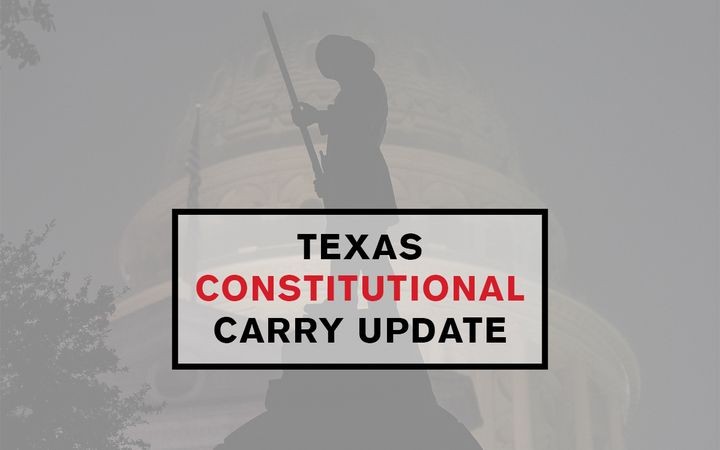

Happy one month anniversary to Texas House Bill 1927, which went into effect at the beginning of September after being signed into law by the Governor Greg Abbott of Texas in June. At the one month mark, let's take a look at the basics of this momentous law, as well as its impact on Texans, both gun owners and non-gun owners alike.
What is House Bill 1927?
House Bill 1927 amended existing code to allow anyone who can legally own a firearm in Texas to carry a handgun in public, either openly or concealed, with some important exceptions. This is commonly referred to as "constitutional carry," meaning that citizens may exercise their Second Amendment rights without unreasonable infringement.
Impact
Previous laws had restored the right of licensed Texans to carry a handgun concealed or openly, and had given all law-abiding citizens the right to keep a handgun in their vehicle. Now, open and concealed carry is an option for all individuals over the age of 21 who legally possess the firearm and have not been convicted of felonies or certain misdemeanors. Notably, the law states that "persons who are currently prohibited from possessing firearms under state and federal law will not gain the right to possess or carry a firearm under this legislation."
The bill keeps certain restrictions on carrying in place. Carrying is still prohibited, for instance, at schools, courts, bars, hospitals, sporting events and more. You can't carry while intoxicated, or where private businesses, landowners or federal law prohibit it. Brandishing an unholstered firearm and similar misbehavior is still unlawful.
The law also increases penalties for unlawful possession, and retains the right of police officers to disarm individuals under certain circumstances.
State Constitutional Carry Comparison
A total of 20 states, including Texas, now have some sort of constitutional carry provision. The following states allow permitless concealed carry for residents, and also offer carry licenses/permits:
- Alaska, Oklahoma, South Dakota, Tennessee, Texas, West Virginia and Wyoming
The following states allow both residents and non-residents to concealed carry, and also offer licenses/permits:
- Arizona, Arkansas, Idaho, Kansas, Kentucky, Maine, Mississippi, Missouri, Montana, New Hampshire, North Dakota and Utah
Additionally, Vermont allows concealed carry but does not issue licenses/permits.
The remaining 30 states not mentioned above (& D.C.) all allow concealed carry only by licensed persons, with restrictions on licensure varying greatly.
Things to Keep in Mind
There are still advantages to getting a license to carry for Texans. First, having a license allows you to carry in certain other states that offer reciprocity for Texas licensees. The training and education associated with obtaining a license is also beneficial — we highly recommend that everyone who carries undergo thorough education and practice. Lastly, licensed Texans are able to carry in certain locations, such as college campuses, where unlicensed persons are not.
If you're going to carry unlicensed, be sure to do it in a responsible manner and be aware of all local laws, policies and rules.
So Far...
… so good. Thankfully, there have been no reports of any upticks in crime or tense confrontations between citizens or with the police. At Silencer Shop, we believe that responsible citizens exercising their Second Amendment rights makes everyone safer.





